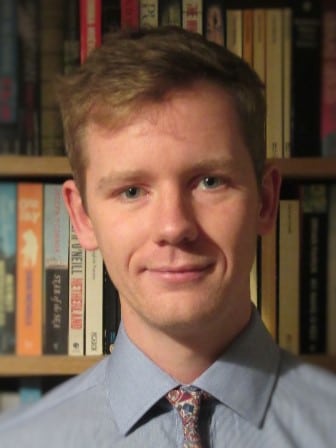An interview with the current ESRC White Rose DTC Collaborative PhD research student
Michael Taster is a current PhD research student in the Department of Urban Studies and Planning at the University of Sheffield. He is the current recipient of the ESRC White Rose DTC Collaborative PhD Studentship from the University of Sheffield co-sponsored by the Regional Studies Association (RSA) and Taylor & Francis.
He has an MA in Town and Regional Planning from the University of Sheffield, and undertook a BA and MSt in Classical Archaeology at Oxford University.
We asked him to tell us about his current research, what he has gained from the collaborative PhD studentship, what he sees as the challenges of being an early career researcher (ECR), and what advice he’d offer other ECRs.
What is the focus of your research?
The focus of my current research is on the impact that new technology is having on scholarly communications. Working under the somewhat cumbersome title of; “The Creation and Reproduction of Policy Relevant Spatial Knowledge and New Publishing Models: A Case Study of Regional Studies”. I see my research as looking at two processes; first, how is academic knowledge that can have an impact on the world being constructed, and second, how are new communication technologies, such as open access publishing, Facebook, Twitter, etc. disrupting and enhancing the presentation of this knowledge.
How did you find out about the collaborative PhD studentship?
Despite researching the effects of new technology on academia, I was first made aware of the opportunity to undertake this PhD through the old fashioned medium of face-to-face interaction. Studying in the same faculty as my supervisor Gordon Dabinett, who has a long involvement with the Regional Studies Association (RSA), and the editor of the RSA’s gold open access journal Regional Studies, Regional Science (RSRS)¸ Alasdair Rae. I came to realise that I was working in a scholarly environment in which publications such as RSRS were quietly revolutionising the way knowledge is communicated. After a meeting with the chief executive of the RSA, I was convinced that the project, especially with the support of Taylor & Francis and the RSA, has the potential to shed light on these unfolding developments.
What level of mentoring and support does it offer?
Working with Taylor & Francis and the RSA has benefited me greatly, due to the opportunities and access offered through collaboration. Having the chance to meet and network with peers and key thinkers in the worlds of publishing and regional studies has greatly enhanced my thinking at this early stage of my research. I was particularly fortunate to have been able to attend the recent Taylor & Francis Conversazione in December. Talking to attendees from across different disciplines and professions presented a unique opportunity to gain a broad perspective on the field of scholarly communication. This has impacted on my research and would have been difficult to gain otherwise.
What are the challenges of being an ECR and embarking on publishing your research?
Reflecting on my experiences of the Conversazione, I think one of the most difficult hurdles for an early career researcher is developing the confidence and belief that your work can and should be published alongside more established voices in the field. I consider myself lucky to be working alongside partners who are actively supportive of academics at the beginning of their career and seek new ways to present their work.
If you could give other ECRs one piece of advice what would it be?
To explore how you can integrate your work with new communications media. In an era where the gateways to top quality research papers range from established publishers to Instagram, there is real scope to present your work in a creative and accessible manner.
The collaborative PhD studentship is sponsored by the Regional Studies Association (RSA) in collaboration with Taylor & Francis and the Department of Town and Regional Planning at the University of Sheffield. It is supervised by Prof. Gordon Dabinett and Dr. Alasdair Rae (University of Sheffield) and Sally Hardy (Regional Studies Association).
Original article published on Author Services by Taylor & Francis
